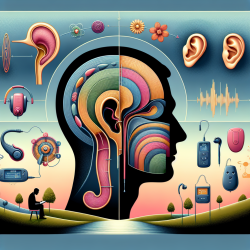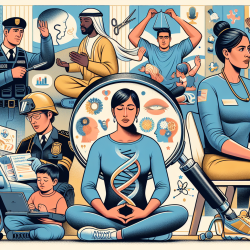Empowering Practitioners: Enhancing Skills Through Research on Abortion Criminalisation

In the realm of online therapy and special education, staying informed about the latest research can significantly enhance practitioners' skills and the quality of care provided. One such pivotal research is "The impact of criminalisation on abortion-related outcomes: a synthesis of legal and health evidence," published in BMJ Global Health. This study meticulously examines the ramifications of criminalising abortion on both health outcomes and human rights, providing valuable insights that can be translated into practice.
Understanding the Research
The study by de Londras et al. (2022) synthesises legal and health evidence to explore the impacts of criminalising abortion. The findings reveal that criminalisation leads to several adverse outcomes, including delayed and unsafe abortions, poor quality healthcare, and increased maternal mortality and morbidity. The study underscores the incompatibility of criminalisation with international human rights law and advocates for full decriminalisation to improve health outcomes and uphold human rights.
Key Findings and Implications for Practitioners
The research highlights several critical points that practitioners in online therapy and special education should consider:
- Delayed and Unsafe Abortions: Criminalisation complicates access to safe abortion services, leading to delays and unsafe procedures. Practitioners should be aware of the legal barriers their clients might face and provide appropriate support and resources.
- Stigma and Psychological Impact: The criminalisation of abortion fosters stigma and psychological distress among those seeking abortions. Practitioners should be prepared to address these mental health challenges and offer non-judgmental support.
- Healthcare Quality: Criminalisation is associated with poor quality of care due to the lack of trained providers and essential medicines. Practitioners should advocate for better training and resources to ensure quality care for their clients.
- Human Rights Violations: The study shows that criminalisation violates human rights, including the right to health and privacy. Practitioners should be informed about these legal implications to better support their clients and advocate for policy changes.
Encouraging Further Research
While the study provides robust evidence, it also highlights the need for further research in diverse settings and among different populations. Practitioners are encouraged to stay updated with ongoing research and contribute to the evidence base by documenting and sharing their experiences and observations.
Conclusion
Integrating the findings of this research into practice can empower practitioners to provide better care and support to their clients. By understanding the adverse impacts of criminalisation and advocating for decriminalisation, practitioners can play a crucial role in improving health outcomes and protecting human rights.To read the original research paper, please follow this link:
The impact of criminalisation on abortion-related outcomes: a synthesis of legal and health evidence.
Citation: de Londras, F., Cleeve, A., Rodriguez, M. I., Farrell, A., Furgalska, M., & Lavelanet, A. (2022). The impact of criminalisation on abortion-related outcomes: a synthesis of legal and health evidence. BMJ Global Health, 7(12), e010409. https://doi.org/10.1136/bmjgh-2022-010409










